
This engrossing documentary opens on a confrontational note, which softens considerably, but never completely fades away. A group of Chicago-based Black activists enter a restaurant during its busy brunch hour and loudly draw attention to the tragic statistics surrounding police shootings. While the camera focuses on the largely White diners’ uncomfortable faces, a voice-over from Ambrell Gambrell, aka Bella Bahhs, who organized the disruption, expresses not the slightest bit of remorse.
Unapologetic goes behind the scenes of the Movement for Black Lives, specifically focusing on Black and Brown women, whose efforts have long been overlooked. Along with Gambrell, director Ashley O’Shay follows Janaé Bonsu, whose passion involves helping women who are victims of violence. The early scenes offer glimpses of their home lives and formative influences. For Gambrell, who is a staunch supporter of reforming the criminal justice system, it was growing up with both parents in prison, while for Bonsu it was her father, who also engaged in acts of civil disobedience. Both have charismatic screen presences.
The film is set against larger events happening in Chicago—specifically, the protests following the fatal police shootings of Rekia Boyd and Laquan McDonald in the 2010s. There is plenty of footage of Gambrell at the front lines with other activists. (One of the most deplorable moments is of a White cop calling her a “bitch” and threatening bodily harm because she dared to touch his bicycle.) Public hearings attended by law enforcement officials are potential powder kegs as well, though interestingly, future mayor Lori Lightfoot, who was then president of the Chicago Police Board, is one of the few public servants on hand to be respectful to the protestors.
Thanks to the filmmakers’ access to the subjects’ private lives, we get a sense of the psychological and emotional strain they are constantly under, not all of which stems from organizing. Bonsu, for example, is working on a PhD in social work, but feels conflicted as she views social workers as helping contribute to the victimization of black women. As for Gambrell, she is distracted by letters from her brother, who is in prison and whom she tries to visit regularly. There’s definitely enough angst to go around, but the film balances it out with gentler scenes with friends, family members, and peers.
It’s through scenes of mother and daughter side-by-side that we see where each got their strong will and sense of resilience. An especially touching scene features Bonsu’s mother, Stacey, during her daughter’s visit home to South Carolina, in which she reveals how her decision to come out as queer was inspired by Janae’s own bisexuality. The theme of strong intergenerational bonds is further reinforced by the one-on-ones between Bonsu and her academic advisor, in which the latter provides welcome nurturing.
Unapologetic’s proximity to the Movement for Black Lives makes it relevant viewing today, but it’s the perspective of that world through the eyes of women that makes the film unique (not to mention cutting on occasion; one female activist claims that the men inside the movement are motivated by ego and their interest in power, and not the actual cause). There are also moments in which O’Shay pays tribute to the Black and Brown women who helped in the fight for racial equality over the years. Watching Gambrell and Bonsu carry on that tradition and go further, thanks to the groundwork laid down by previous generations, is what ultimately makes the film triumphant viewing.

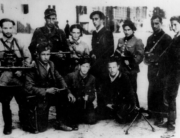
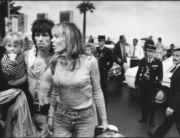
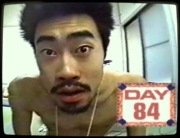
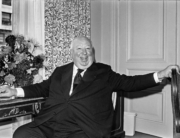
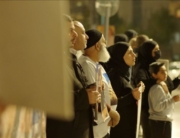
Leave A Comment